Despite what the movies teach us, courage doesn’t just mean bravery – it also means facing our fears, overcoming life’s difficulties, and doing the right thing regardless of what others might think of us.
The Baha’i teachings ask all human beings to actively work to develop the attribute of courage. Abdu’l-Baha, in a talk he gave in Paris early in the 20th century, asked everyone in that gathering “To be so faithful and sincere in all your actions that every member may be known as embodying the qualities of honesty, love, faith, kindness, generosity, and courage.”
Dave Eberwein, the author of Six Types of Courage, elucidates courage as “a prerequisite for change to happen because change creates uncertainty. And uncertainly can lead to fear and apprehension for change. So, being courageous as a leader is important.” Eberwein lists six types of courage:
- Physical Courage: To keep going with resiliency, balance, and awareness.
- Social Courage: To be yourself unapologetically. Whether you are an introvert or extrovert, you are proud and accepting of who you are in this world.
- Moral Courage: Doing the right thing even when it’s uncomfortable or unpopular.
- Emotional Courage: Feeling all your emotions (positive and negative) without guilt or attachment.
- Intellectual Courage: To learn, unlearn and relearn with an open & flexible mind.
- Spiritual Courage: Living with purpose & meaning through a heart-centered approach towards all life and oneself.
However, Eberwein adds, in order to be courageous we need to be genuine – both to ourselves and others. When we genuinely try to be courageous, we find the balance and ability to be comfortable with who we are and the confidence to accept personal change. Thus, we become a leader with determined courage in times of uncertainty. Linda Popov in The Family Virtues Guide notes that if we feel afraid, we can recognize our fear, name it, and let it go. That allows us to make a wise and courageous decision to go ahead and do the right thing, even if we still feel afraid.
With courage we become confident but not arrogant, consistent but open to personal change, and comfortable but still eager to learn more and more.
Mary Ann Radmacher, a writer and an artist, has a beautiful explanation of this wonderful human quality: “Courage doesn’t always roar. Sometimes courage is the quiet voice at the end of the day saying ‘I will try again tomorrow.’”
Courage gives us the ability to change the world to a better place for ourselves and others. Many courageous individuals throughout history have helped humanity progress. For example, Dr. Martin Luther King, Jr., the brave civil rights leader, courageously stood up for equality and human rights. In the mid-nineteenth century, two courageous leaders of the women’s rights movement – Elizabeth Cady Stanton and Susan B. Anthony – started advocating for women’s rights in the United States.
At the same time in Iran, a courageous woman named Zarin-Taj, later known as Tahirih, who was born into a religious Muslim family, heard of a new prophet named the Bab (meaning “the Gate”). Tahirih accepted the Bab’s new Faith, became a Babi, and as a result met with strong opposition from her family and her society.
Her courageous embrace of the Bab’s new revelation caused her to suffer many consequences. When she escaped house arrest to meet with the principal Babi teachers in the Persian city of Badasht, Tahirih removed her veil, in direct defiance of Muslim law – because the new religion she believed in called for the equality of men and women.
Tahirih means “the pure one” – a title that Baha’u’llah, the prophet and founder of the Baha’i Faith, whom the Bab called “Him Whom God Shall Make Manifest” – gave her at the Badasht conference.
Tahirih had the courage of her convictions, as the first Iranian woman who stood up for women’s rights in Iran – and she paid the ultimate price for her courage. She was finally captured by the government, strangled to death with her own scarf, and dropped into a well. Tahirih’s last words were,” You can kill me as soon as you like, but you cannot stop the emancipation of women.”
Courage – leading with our heart and with meaning – requires us to be genuine towards others. Courage purposefully seeks the balance we need to be as healthy and as strong as possible. Courage means to admit our mistakes and learn from them. Courage is about embracing our emotions, staying true to the facts, yet remaining open to the reality that we may be wrong, and always seeking the independent investigation of the truth.
Abdu’l-Baha said, “Only have faith, patience and courage — this is but the beginning, but surely you will succeed, for God is with you.”
This new Virtues Basket video gives an opportunity to parents and children to learn why and how to practice courage.
Setareh Samandari Zargarpour has always been an artist at heart, after a 20-year career in Banking as Branch Manager for Wells Fargo and Chase she transitioned to working in Film. She had finished her Master of Arts in Political Science from CSUN and utilized it...
READ MORE

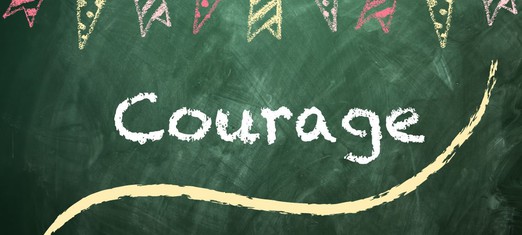

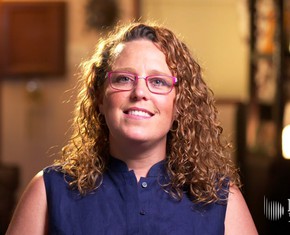
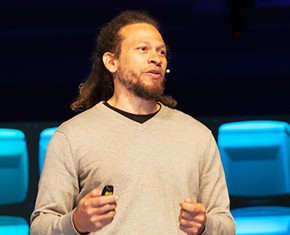
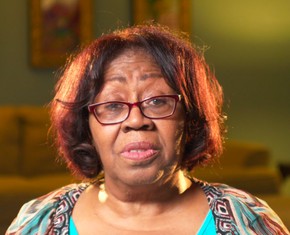
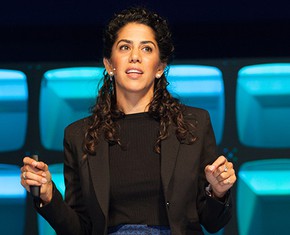









Comments
Sign in or create an account
Continue with Googleor